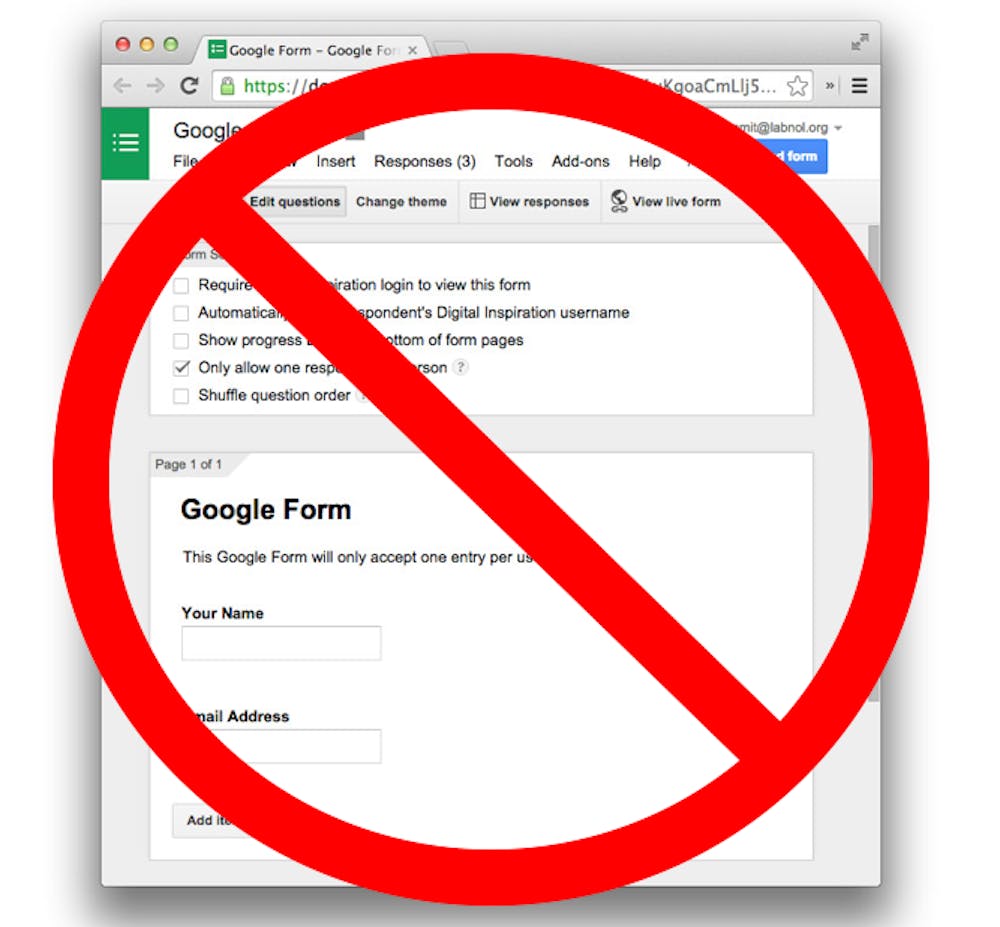Rising Junior Going Through Google Form Withdrawal

Photo by Amit Agarwal / CC 2.0
June 8, 2017 at 4:29 pm
"It's been a month, maybe longer," rising Wharton junior Steven Zhu told us on Wednesday. "This has been the hardest experience of my life."
Zhu is just one of many students going through near-unimaginable discomfort, both physical and mental, in the transition from school to summer. It isn't his friends, nor the cockroaches of West Philadelphia, that Zhu and many others are missing. Instead, it is the humble Google Form.
"At school, they're everywhere. You can't log onto Facebook or check your email without seeing a handful of Google Forms to fill out," Zhu lamented. "It's so easy to access Google Forms... you get used to it. Your body adjusts. You start to need more and more Google Forms to feel like a functional adult and a contributing member of the Penn community. All of a sudden you leave for the summer and it's cold turkey, zero Google Forms. In the real world you can't find them on every alley and street corner the way you can at Penn."
We spoke to Dr. Amy Blise, a professor specializing in addiction at the Perelman School of Medicine, to find out whether or not students can truly become dependent or addicted to Google Forms.
"It's possible, I suppose," Blise said. "Just about anything can be addictive. If students like this one are taking high numbers of Google Forms each week, especially while in a stressful environment like Penn, it's conceivable that they could become addicted to the action of filling out these surveys."
Although she acknowledged the potential for addiction in regards to Google Forms, Blise also noted that there are many substances that pose far more danger to the mental and physical wellbeing of the user than do Google Forms.
"Have you seen that episode of My Strange Addiction where the woman is addicted to drinking paint?"
Looking at Zhu, though, the physical toll is obvious. Zhu, clearly in the throes of withdrawal, is sweaty and wan. His pallid skin suggests not just exhaustion but fragility, as if his inability to fill out Google Forms has weakened him to the point that he could be broken by a stiff breeze or a gentle handshake.
Blise says that quitting something "cold turkey" usually doesn't take this long, and that, while she hasn't studied the effects of completing Google Forms directly, the situation may imply some unknown qualities of Google Forms which make them particularly hard to quit.
In the living room of Zhu's home in the northern section of Westchester, his parents told us that they're looking into rehab, some program where Zhu might be given limited access to a decreasing number of Google Forms each week, to wean him off. He's started at 14 Google Forms per day, and after a month of treatment, he's already down to 11.
"It's hard, though. Most established rehabilitation centers don't have programs that deal with Google Form addiction, yet," they said.